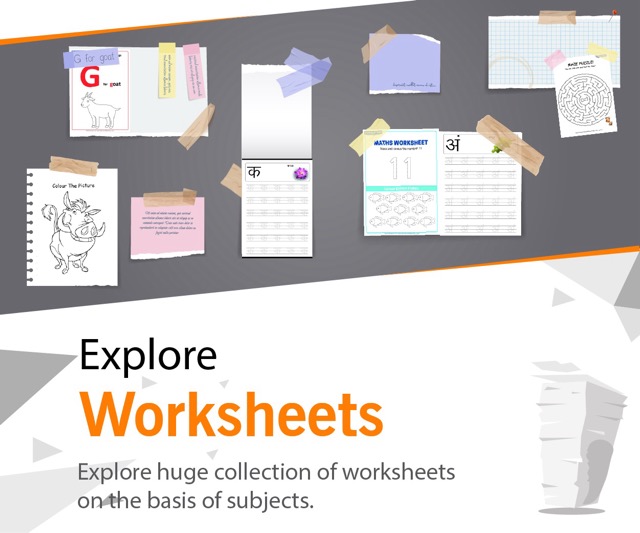Final exams looming? Feeling the pressure? It's that time of the year again, and let's be honest, it can be stressful. But don't worry, this isn't another generic "stay calm and believe in yourself" blog post. We're going to dive deep into practical, actionable strategies that will actually help you make the most of your remaining revision time. Think of this as your personalized revision boot camp, designed to get you exam-ready.
Essential Steps to Get You Exam-Ready
Let's break down exactly how you can make the most of your remaining time and set yourself up for success.
1. Know Thyself (and Your Exams)
Before diving headfirst into your textbooks, take a moment to understand the battlefield:
- Syllabus Deep Dive: Don't just skim it; dissect it. What are the key topics? What's the weightage of each unit? Knowing this is like having a map of the treasure.
- Exam Format: Multiple choice? Essays? Problem-solving? Each requires a different approach. Practice with past papers under timed conditions to get a feel for the rhythm.
- Your Learning Style: Are you a visual learner? Auditory? Kinesthetic? Tailor your revision methods to suit your style. Flashcards, mind maps, teaching others – find what clicks.
- Identify Weak Areas: Be honest with yourself. What topics make you want to run for the hills? These are your priority targets. Don't ignore them! Break them down into smaller, manageable chunks.
Pro Tip: Create a list of major topics and mark them as:
- Red: "Help! I'm completely lost."
- Yellow: "I kind of get it, but I need practice."
- Green: "I've got this."
This isn't just busywork—it's your personalized study roadmap. Spend about 50% of your time on red topics, 30% on yellow, and 20% on green.
2. Craft Your Revision Timetable (The Smart Way)
Forget cramming; it's the enemy of long-term retention. A well-structured timetable is your best friend. But not just any timetable – a smart one:
- Realistic Goals: Don't try to cram 10 chapters into one day. Set achievable targets. Rome wasn't built in a day, and neither is exam success.
- Time Blocks: Give specific time slots for each subject or topic. Use the Pomodoro Technique (25 minutes of focused work, 5-minute break) to maintain concentration.
- Prioritize Difficult Topics: Tackle the tough stuff when your brain is fresh. Leave the easier topics for when you're feeling fatigued.
- Mix It Up: Don't spend hours on one subject. Alternate between subjects to keep your brain engaged.
- Breaks Are Non-Negotiable: Schedule regular breaks. Get up, stretch, grab a snack, listen to music – recharge your batteries.
- Sleep is Your Superpower: Pulling all-nighters is a terrible strategy. Aim for 7-8 hours of quality sleep. A well-rested brain performs far better.
3. Revision Techniques That Actually Work
Ditch the passive reading and highlight-everything-in-sight approach. Engage actively with the material:
- Active Recall: The gold standard of revision. Close your book and try to recall information from memory. Use flashcards, self-testing, or the Feynman Technique (explain a concept in simple terms).
- Spaced Repetition: Review material at increasing intervals. This strengthens memory and combats forgetting.
- Mind Mapping: Visualize connections between concepts. This is especially helpful for subjects with lots of interconnected ideas.
- Teach Someone Else: Explaining any concept to someone else helps you understand it better.
- Past Papers: The ultimate exam simulator. Practice under timed conditions to identify weaknesses and build confidence. Analyze your mistakes and learn from them.
- Create Mnemonics: Use acronyms, rhymes, or visual images to remember key facts and formulas.
4. Optimize Your Study Environment
Your surroundings have a huge impact on your focus and productivity:
- Find Your Spot: A quiet, comfortable space free from distractions.
- Declutter: A clean workspace promotes a clear mind.
- Minimize Distractions: Turn off social media notifications, put your phone on silent, and let your family know you need uninterrupted time.
- Good Lighting: Essential for preventing eye strain and fatigue.
- Ergonomics: Ensure your chair and desk are at the right height to prevent back pain and discomfort.
The Week Before Exams
Here's your daily game plan:
- Morning (9 am-12 pm): Heavy lifting - tackle your most challenging topics
- Afternoon (2 pm-5 pm): Practice problems and past papers
- Evening (7 pm-9 pm): Light review and organization for tomorrow
- Before bed: A 10-minute overview of what you'll study tomorrow
Don't forget to:
- Sleep at least 7-8 hours (your brain consolidates information during sleep)
- Eat proper meals (your brain needs fuel)
- Take 10-minute walks between study sessions (physical movement improves learning)
- Stay hydrated (even mild dehydration impacts concentration)
Emergency Rescue Plan
If you're really behind, here's your strategy:
- Focus on topics that you see frequently in past papers
- Master the basic concepts that other topics build upon
- Learn to score partial marks even when you don't know everything
- Prepare good "framework answers" for common question types
Remember: Perfect is the enemy of good. You don't need to know everything perfectly—you need to know enough to pass and demonstrate an understanding of key concepts.
Pro Tips
1. Create your own practice questions. Instead of just answering past papers, write exam questions yourself. This forces you to think like an examiner and understand what's truly important.
2. "Teach It to A 12-Year-Old" Test: If you can explain a complex concept in simple terms, you truly understand it. Record yourself explaining topics as if you're teaching a younger sibling. When you stumble or use vague terms, that's your cue to go back and study that part more deeply.
3. Digital Tools That Actually Help: Don't just use any flashcard app - be strategic:
- Anki: Uses spaced repetition algorithms to show you cards at optimal intervals
- Mind mapping tools like MindMeister: Perfect for connecting concepts
- Forest app: Blocks distracting apps while you study
- Google Calendar: Block out specific study sessions and set reminders
Conclusion
Be patient, persistent, and believe in yourself. With the right strategies and a positive mindset, you can conquer those exams and achieve your academic goals.
Good luck, you've got this!









Be the first one to comment on this story.